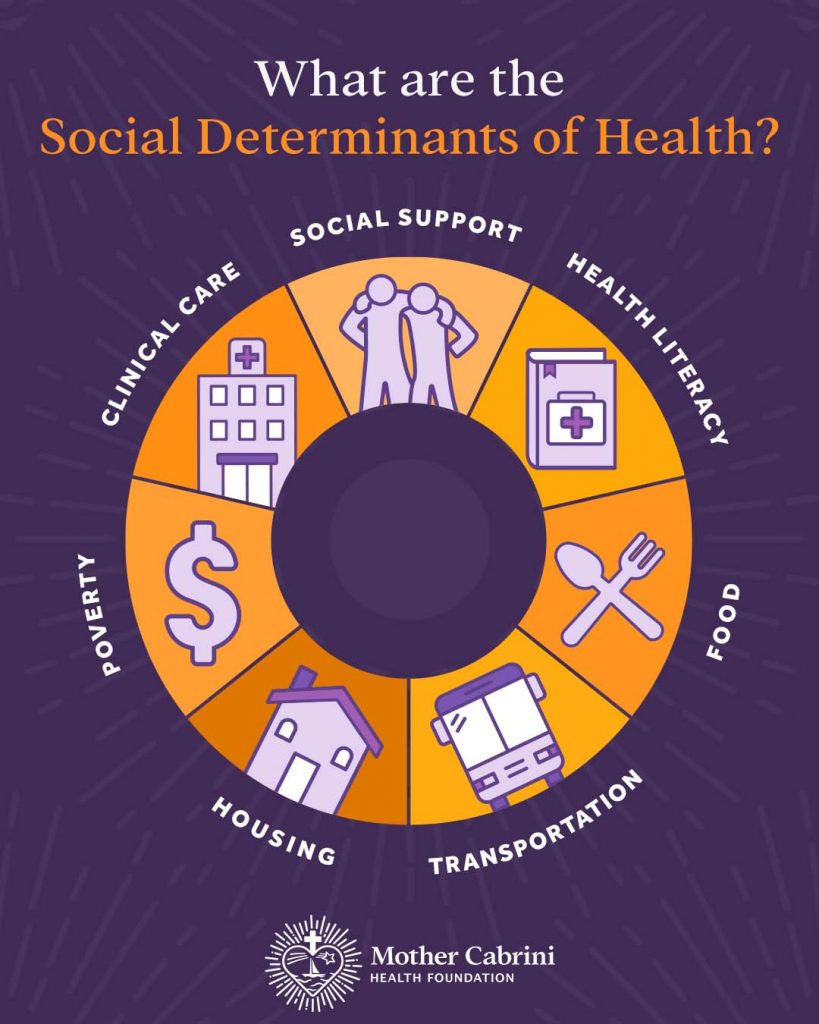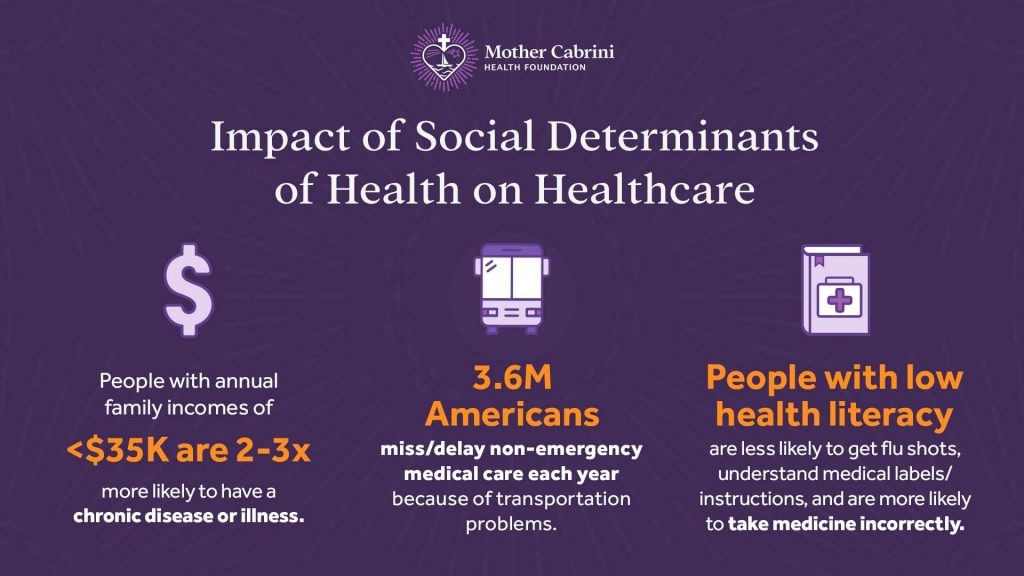Social Determinants of Health.
Addressing Social Determinants of Health: A Comprehensive Approach to Care

“Social determinants of health” has become a frequently referenced term in our national healthcare conversation—though less often understood or reflected in public policy.
The concept refers to understanding a person’s health status as the product of a complex set of social factors. In other words: Healthcare isn’t just access to doctors. It is economic security, health literacy, availability and access to nutritious food, housing safety and stability, and transportation access and mobility.
After a pandemic that laid bare stark health inequities across New York State—and the heightened challenges for communities with less access not just to healthcare facilities, but a full spectrum of essential social support services—prioritizing a comprehensive approach to health and recovery has never been more critical.
At the Mother Cabrini Health Foundation, we believe that such an approach to healthcare, one that emphasizes the influence of these diverse environmental conditions, is critical.
The research is clear. Studies have shown that 80% of health outcomes can be attributed to social factors; a growing body of academic research strongly suggests the same. Access to food, housing, a living wage, education, social support system—these myriad social concerns shape the lives and define the scope of challenges faced by the underserved.
Therefore, we are committed to aligning our grantmaking priorities with the work of organizations addressing not just access to care, but all the many health-related needs vulnerable populations face across New York State.

Addressing health disparities in New York means targeting clinical care barriers as well as investing in the social determinants of health. Mother Cabrini Health Foundation is committed to doing both, by supporting health providers as well as New York’s extensive network of community-based human services organizations.
